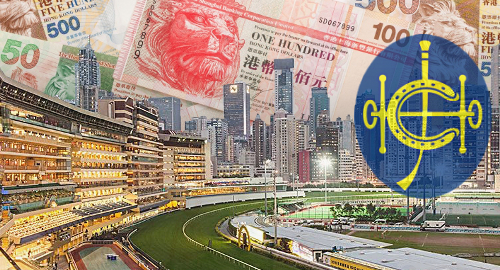 The Hong Kong Jockey Club (HKJC) set yet more turnover records in its most recent fiscal year, which is basically about what you’d expect considering the club has no legal competition.
The Hong Kong Jockey Club (HKJC) set yet more turnover records in its most recent fiscal year, which is basically about what you’d expect considering the club has no legal competition.
Thursday saw the HKJC release its annual results for the 12 months ending June 30, during which the gambling monopoly generated total turnover of HK$234b (US$29.8b). This astronomical sum is 8.1% higher than the HKJC reported during its fiscal 2016-17.
From this turnover, the HKJC made a return to the special administrative region’s government of HK$22.6b, contributed HK$1.2b to the Lotteries Fund and charitable donations of HK$4.2b, all of which are also records.
Racing turnover was up 6% year-on-year to a record HK$122.8b, thanks to the HKJC’s commitment to commingling its pools with other international racing giants (now 38 partners in 10 regions). The total amount wagered via commingling was up 154.8% to HK$16.6b, equal to 13.3% of 2017-18’s total.
The HKJC will host the Ascot World Pool next year, with two UK partners commingling into the HKJC pools for the five days of Royal Ascot. This will mark the first time the HKJC provides commingling on an overseas race meeting.
On Tuesday, the HKJC presided over the opening of the Conghua Racecourse in Guangzhou, which the club calls “the beginning of a new era for Hong Kong racing.” The new facility provides training, stabling, veterinary and rehabilitation facilities that will allow the club to renovate the stabling and training facilities at its mainstay Sha Tin course.
The HKJC’s non-racing operations also had a good year, with football turnover up 11.2% to HK$103.1b, driven by activity surrounding the 2018 FIFA World Cup. Hopefully these World Cup punters were able to actually collect their winnings, unlike the poor Premier League bettor who lost over $6k due to the HKJC’s rigid refusal to right an obvious wrong.
The HKJC’s Mark Six lottery division also posted gains, although it was up a more modest 1.2% to HK$8.1b. The HKJC’s report meekly notes that the product “has not changed significantly since its introduction,” a lack of innovation that tends to plague most monopolies the longer they stick around.